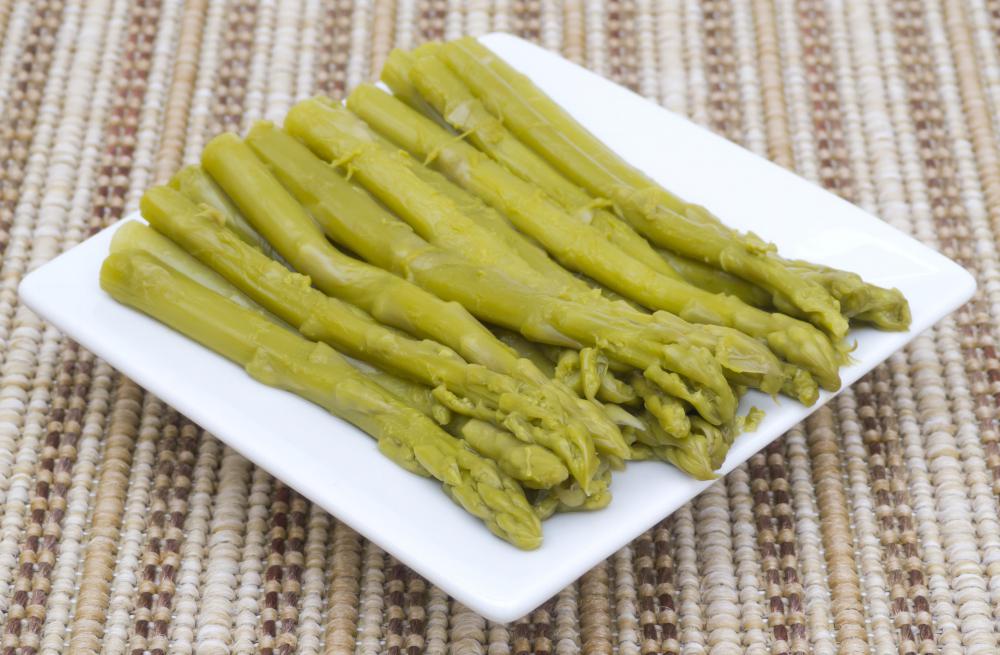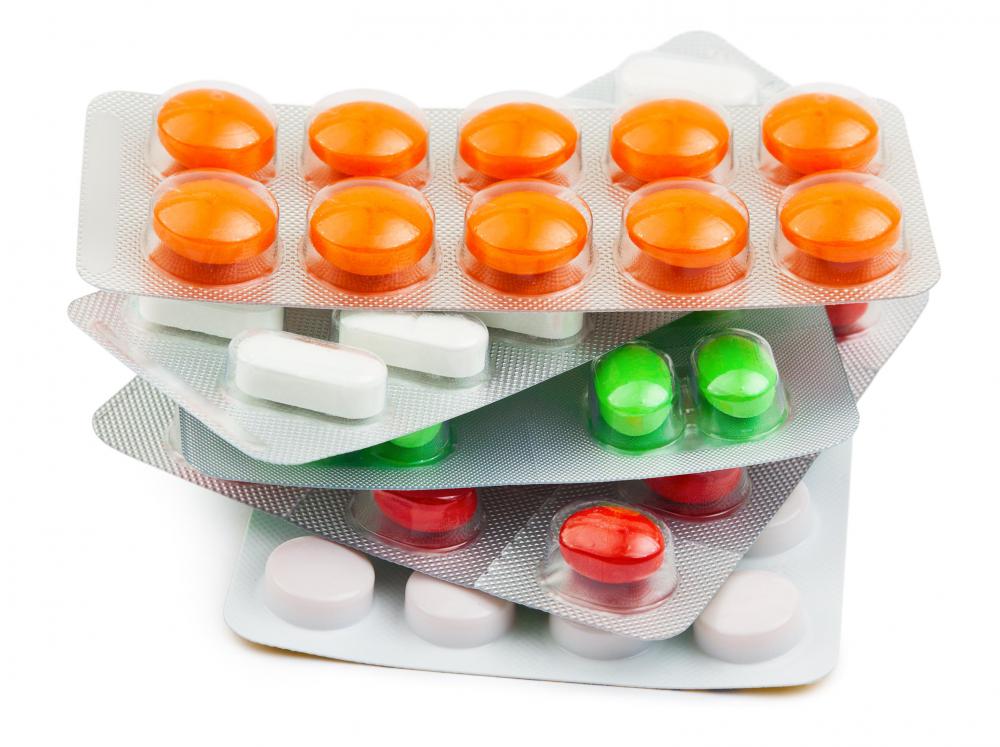At WiseGEEK, we're committed to delivering accurate, trustworthy information. Our expert-authored content is rigorously fact-checked and sourced from credible authorities. Discover how we uphold the highest standards in providing you with reliable knowledge.
What are Different Types of over-The-Counter Diuretics?
Often nicknamed "water pills," diuretics are substances that work by stimulating activity in the kidneys, increasing the passage of body fluids and salts by urination. Diuretics are used to treat excess fluid in the body, a side effect of a number of medical conditions including high blood pressure, congestive heart failure, glaucoma and kidney disease. Over-the-counter diuretics include mild diuretics, herbal products, and foods with diuretic agents.
One of the most well-known over-the-counter diuretics is a drug called pamabrom. Pamabrom is a mild diuretic used in products designed to treat excess water weight, bloating, and puffiness that occurs during menstruation. It is often combined with pain relievers and marketed under multiple nonprescription brand names.

Thanks to its rich caffeine content, both coffee and tea have diuretic properties. When taken in liquid form, however, the diuretic effects are often balanced out by the water content of the drink. With regular consumption, individuals can build up a tolerance to caffeine and decrease its diuretic effects.
Caffeine also naturally occurs in some other plants, including the Brazilian guarana, which has a higher concentration of caffeine than coffee beans. Guarana is available in capsule form and is a popular extract used in energy drinks. Over-the-counter diuretics are often combined with caffeine and marketed in weight loss pills available online and through retail and health food stores.

The majority of over-the-counter diuretics are herbal based. For example, the dandelion has long been a part of traditional Native American medicine and is thought to stimulate gentle removal of water from the body. The culinary herb parsley can also be used to flush out the kidneys. Similar to dandelions, parsley is also a natural source of potassium and may be more effective at preventing potassium deficiencies than some other diuretics. Cranberries, asparagus, beets, and a host of other foods are natural diuretics that can be added to the diet without the need for a prescription.

Those interested in taking over-the-counter diuretics should not assume that these products are safe. Even the best over-the-counter diuretics are not meant to treat serious health conditions. The potential for abuse is also an important factor; sufferers of eating disorders and those looking to lose weight often rely on diuretics. Diuretics are not capable of burning fat, however, only water weight.

Long term use of diuretics can lead to dehydration and potassium deficiency. These substances may also cause harm in individuals with preexisting medical conditions or those already using a prescription diuretic. For health and safety, anyone considering an over-the-counter diuretic should seek the advice of doctor or pharmacist.
AS FEATURED ON:
AS FEATURED ON:
















Discussion Comments
@SerafinA -- I agree. Some people think that you should drink less water with water retention. Unless your physician tells you otherwise, it is more dangerous to decrease water in your regimen. Water is lost in the moisture of breathing, perspiration, body secretions, and tears. That's just a few of the processes that release water daily. It is necessary to replenish your reserves with quality water daily. Soda and coffee don't count. Half of our population is in a constant state of dehydration and never attribute their health woes to lack of H20.
My nutritionist said that artichokes, watermelon, and tomatoes can also be a natural diuretic for those who do no want to take pills and would rather get rid of water retention with food.
The important thing to know about taking a diuretic over the counter is that you have to be careful about hydration and loss of nutritional value. You should not use these products for more than a few days and get a doctor or dietitian's advice.
Post your comments